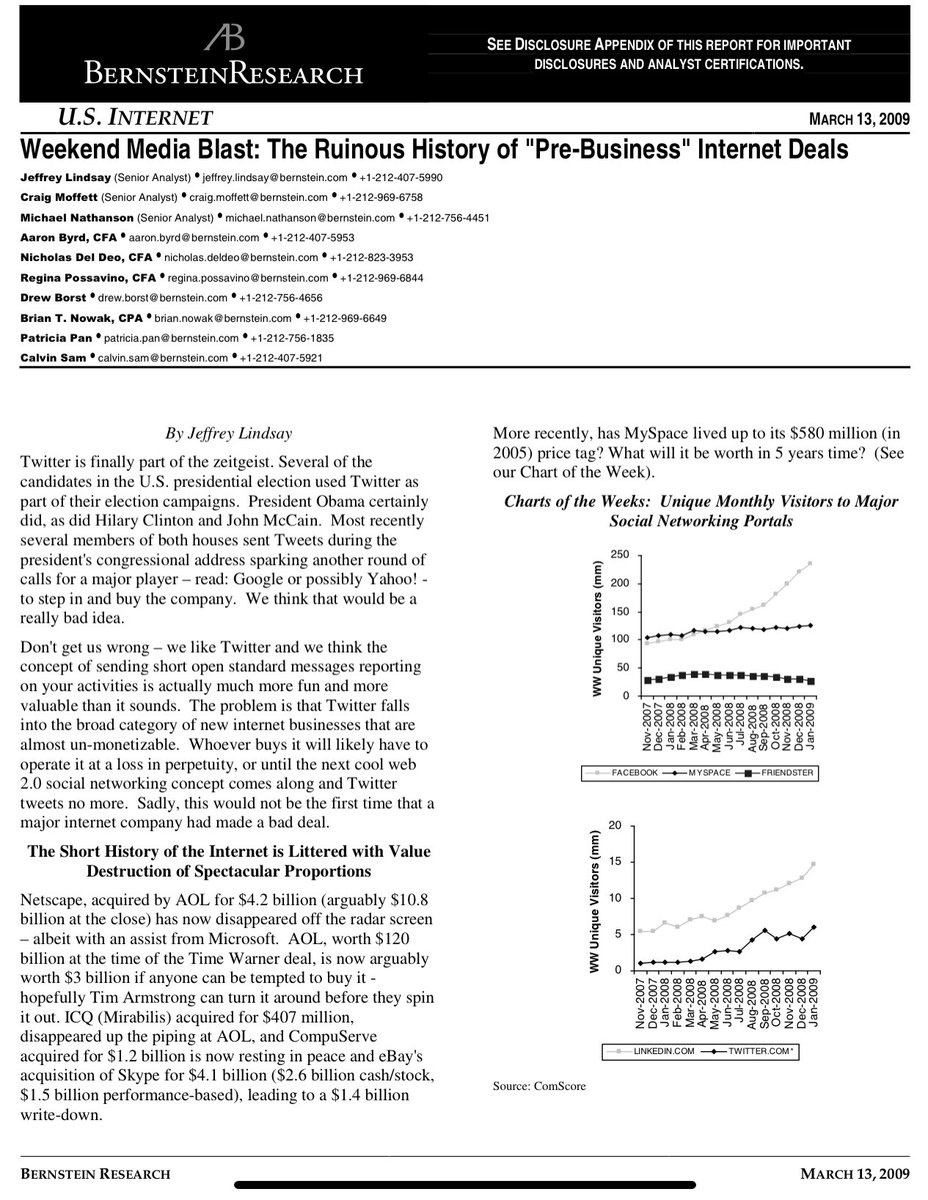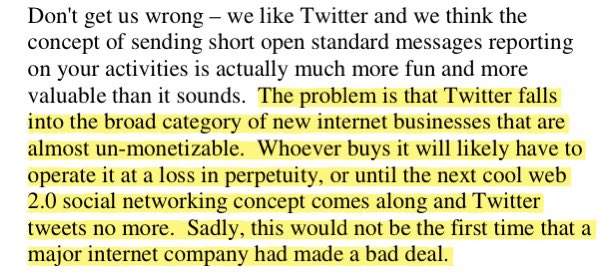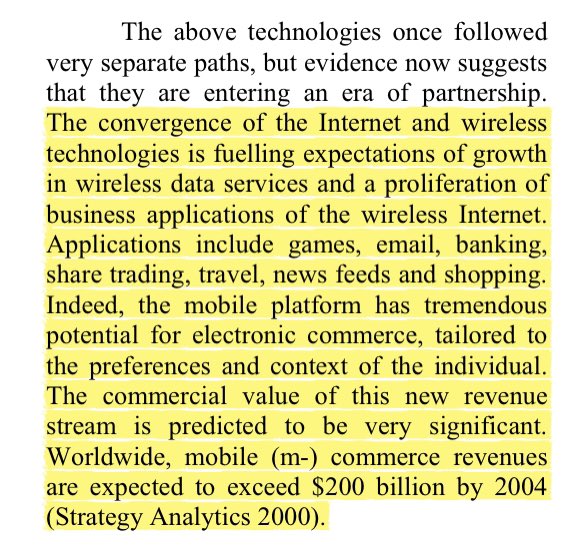1/ Something I think about a lot: when it comes to tech history, it's just as important to not "overlearn" the lessons of the past as it is to learn them at all
A good example: this 2009 Bernstein report on Twitter & Facebook, "The Ruinous History of Pre-Business Internet Deals"
A good example: this 2009 Bernstein report on Twitter & Facebook, "The Ruinous History of Pre-Business Internet Deals"

2/ In retrospect, investors "overlearned" the lessons of history from the tech bubble. By the late 2000s, the collapse of AOL, Yahoo, and other Web 1.0 properties had "proven" it was impossible to make money advertising on general-use social platforms
3/ The implications were clear. Youtube would never make enough money to offset video bandwidth & storage costs. Twitter would "operate at a loss in perpetuity, or until the next cool web 2.0 social networking concept comes along and Twitter tweets no more" 



4/ The reason? "People just don't want to click on ads when they are engaging in social networking activities." Facebook users would consider any ad targeting to be an "unacceptable violation of user privacy" 



5/ The problem, of course, is that historical case studies assume constant consumer behavior over time
In reality, consumer demand adapts to tech just as readily as tech adapts to consumer demand: Facebook's ads adapted to their users... and Facebook's users got used to the ads
In reality, consumer demand adapts to tech just as readily as tech adapts to consumer demand: Facebook's ads adapted to their users... and Facebook's users got used to the ads
6/ I've joked before that it's easy to predict the future of technology - just look at what's already failed, and assume that somebody will eventually make a version that actually works. The same is true with tech business models!
• • •
Missing some Tweet in this thread? You can try to
force a refresh















